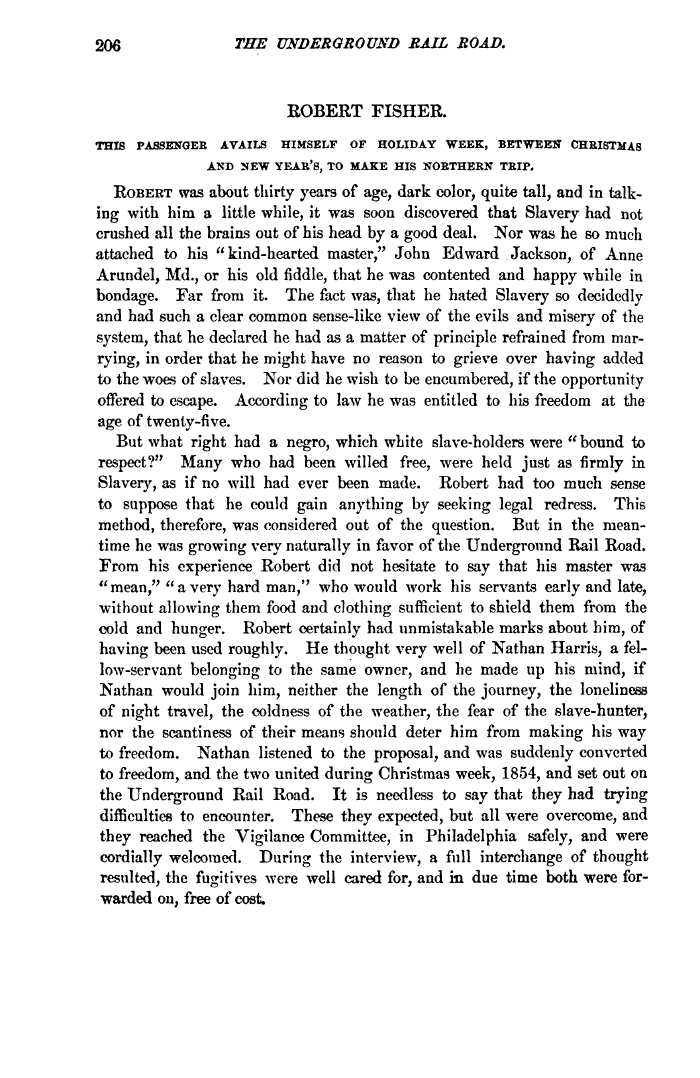 |
||||
 |
||||
| 206 THE UNDERGROUND RAIL ROAD. ROBERT FISHER. THIS PAJSSENGEB AVAILS HIMSELF OF HOLIDAY WEEK, BETWEEN CHRISTMAS AND NEW YEAR'S, TO MAKE HIS NOETHEBN TRIP. ROBERT was about thirty years of age, dark color, quite tall, and in talking with him a little while, it was soon discovered that Slavery had not crushed all the brains out of his head by a good deal. Nor was he so much attached to his "kind-hearted master," John Edward Jackson, of Anne Arundel, Md., or his old fiddle, that he was contented and happy while in bondage. Far from it. The fact was, that he hated Slavery so decidedly and had such a clear common sense-like view of the evils and misery of the system, that he declared he had as a matter of principle refrained from marrying, in order that he might have no reason to grieve over having added to the woes of slaves. Nor did he wish to be encumbered, if the opportunity offered to escape. According to law he was entitled to his freedom at the age of twenty-five. But what right had a negro, which white slave-holders were " bound to respect?" Many who had been willed free, were held just as firmly in Slavery, as if no will had ever been made. Robert had too much sense to suppose that he could gain anything by seeking legal redress. This method, therefore, was considered out of the question. But in the meantime he was growing very naturally in favor of the Underground Rail Road. From his experience Robert did not hesitate to say that his master was "mean," "a very hard man," who would work his servants early and late, without allowing them food and clothing sufficient to shield them from the cold and hunger. Robert certainly had unmistakable marks about him, of having been used roughly. He thought very well of Nathan Harris, a fellow-servant belonging to the same owner, and he made up his mind, if Nathan would join him, neither the length of the journey, the loneliness of night travel, the coldness of the weather, the fear of the slave-hunter, nor the scantiness of their means should deter him from making his way to freedom. Nathan listened to the proposal, and was suddenly converted to freedom, and the two united during Christmas week, 1854, and set out on the Underground Rail Road. It is needless to say that they had trying difficulties to encounter. These they expected, but all were overcome, and they reached the Vigilance Committee, in Philadelphia safely, and were cordially welcomed. During the interview, a full interchange of thought resulted, the fugitives were well cared for, and in due time both were forwarded 011, free of cost. |